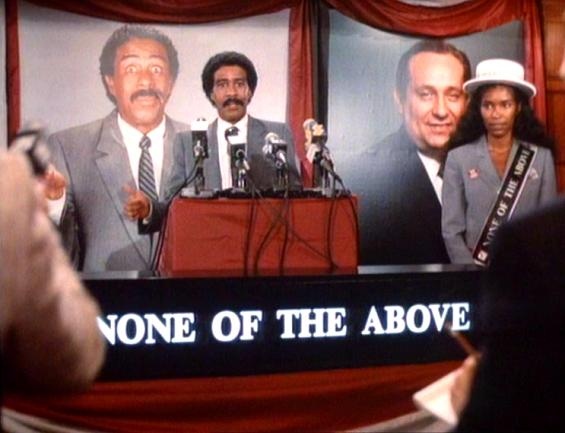Deficit Is Shrinking Quickly
Posted: Tue May 14, 2013 11:11 pm
http://online.wsj.com/article/SB1000142 ... 71366.html
WASHINGTON—A rapidly shrinking federal budget deficit is upending bipartisan talks to reach a federal budget deal, illustrating the conundrum Washington faces with an improving near-term fiscal outlook but continued longer-term pressures tied to aging baby boomers.
The Congressional Budget Office said Tuesday the federal deficit is expected to shrink to $642 billion in the fiscal year ending Sept. 30, narrowing from the agency's estimate of $845 billion three months ago and sharply lower than last year's $1.087 trillion shortfall.
The agency attributed the drastic shift to higher-than-expected individual and corporate tax payments, due in part to growth and higher rates that kicked in at the beginning of the year, and large dividend payments that mortgage-finance companies Fannie Mae FNMA +26.32% and Freddie Mac FMCC +26.37% plan to make to the government this year.
After four straight years of $1 trillion deficits, the country's fiscal picture is changing. A slowly recovering economy, cuts in government spending driven by periodic budget clashes, and higher taxes have narrowed the gap between what the government brings in and what it spends.
These developments have virtually halted deficit-reduction talks because politicians suddenly find they have breathing room before the next deadline requiring negotiations between political parties locked in disagreement over vastly different budget priorities.
"You can hear the air fizzing out now," said Steve Bell, a Republican and senior director at the Bipartisan Policy Center who has called for Congress to reach a budget deal. "They are just overly tired of the same fight, tearing the same scab off the same wound."
For example, lawmakers now won't face a decision over whether to raise the nation's borrowing limit until October or November, the CBO said Tuesday—much later than the summer deadline that was projected several months ago.
The Treasury Department this week is expected to give its own estimate. Many Republicans have said they planned to use the debt-limit deadline as leverage to force new spending cuts and other budget changes.
The White House and Republicans have been locked in a budget fight since 2011, leading to a number of piecemeal deals that have reduced the deficit by both raising taxes and cutting spending. White House officials have said they want more tax increases while Republicans have called for structural changes to Medicare and Medicaid, the two sprawling government health-care programs, while saying they won't back new tax increases.
Earlier this year, a bipartisan effort was under way to lock in more deficit cuts, particularly later in the decade, but those talks have stalled in recent weeks, in part because of the shrinking deficit.
The CBO said the improving deficit picture would continue for several years but would reverse course in 2016, when spending picks up as a share of the economy and revenue levels off. It said Medicare and Social Security would begin to consume an even larger share of the budget. By 2023, Social Security and government health-care spending is expected to hit $3 trillion, or half the budget.
Sen. Bob Casey (D., Pa.), asked if the smaller deficit makes it harder to forge a long-term budget deal, said: "It makes things difficult but I don't think anyone who has been paying attention to this thinks we can continue to put off the fiscal questions before us."
The CBO said the deficit for fiscal 2013 is projected to be 4.0% of gross domestic product, still higher than historical averages but down from 7.0% in 2012 and 10.1% in 2009.
The White House and several budget think tanks have said the deficit should be somewhere below 3% of GDP, but many Republicans have said policy makers should strive to eliminate annual deficits entirely.
The CBO said its lower deficit projection for this year reflects higher tax receipts—driven by higher individual and corporate income and one-time moves made by wealthier taxpayers to absorb a tax hit in late 2012 rather than wait until higher tax rates began in 2013 as part of the January fiscal-cliff deal. It also includes an expected $95 billion in dividends from Fannie Mae and Freddie Mac. Both firms were bailed out by taxpayers in 2008 and have been in government conservatorship since.
The CBO said that a number of factors—including lower projections for spending on Medicare, Medicaid, and Social Security—led it to significantly lower its projections for cumulative deficits over the next 10 years. The CBO on Tuesday estimated the total gap between government spending and revenue from 2014 until 2023 would be $6.3 trillion—$618 billion less than it projected in February.
While the deficit is shrinking, the CBO said the federal debt—all the borrowing accumulated by the government over the years—is expected to dip slightly and then begin climbing in 2019, remaining above 70% of GDP. Over the past 40 years, debt as a share of GDP has averaged 39%.
"Such high and rising debt later in the coming decade would have serious negative consequences," the CBO said.
WASHINGTON—A rapidly shrinking federal budget deficit is upending bipartisan talks to reach a federal budget deal, illustrating the conundrum Washington faces with an improving near-term fiscal outlook but continued longer-term pressures tied to aging baby boomers.
The Congressional Budget Office said Tuesday the federal deficit is expected to shrink to $642 billion in the fiscal year ending Sept. 30, narrowing from the agency's estimate of $845 billion three months ago and sharply lower than last year's $1.087 trillion shortfall.
The agency attributed the drastic shift to higher-than-expected individual and corporate tax payments, due in part to growth and higher rates that kicked in at the beginning of the year, and large dividend payments that mortgage-finance companies Fannie Mae FNMA +26.32% and Freddie Mac FMCC +26.37% plan to make to the government this year.
After four straight years of $1 trillion deficits, the country's fiscal picture is changing. A slowly recovering economy, cuts in government spending driven by periodic budget clashes, and higher taxes have narrowed the gap between what the government brings in and what it spends.
These developments have virtually halted deficit-reduction talks because politicians suddenly find they have breathing room before the next deadline requiring negotiations between political parties locked in disagreement over vastly different budget priorities.
"You can hear the air fizzing out now," said Steve Bell, a Republican and senior director at the Bipartisan Policy Center who has called for Congress to reach a budget deal. "They are just overly tired of the same fight, tearing the same scab off the same wound."
For example, lawmakers now won't face a decision over whether to raise the nation's borrowing limit until October or November, the CBO said Tuesday—much later than the summer deadline that was projected several months ago.
The Treasury Department this week is expected to give its own estimate. Many Republicans have said they planned to use the debt-limit deadline as leverage to force new spending cuts and other budget changes.
The White House and Republicans have been locked in a budget fight since 2011, leading to a number of piecemeal deals that have reduced the deficit by both raising taxes and cutting spending. White House officials have said they want more tax increases while Republicans have called for structural changes to Medicare and Medicaid, the two sprawling government health-care programs, while saying they won't back new tax increases.
Earlier this year, a bipartisan effort was under way to lock in more deficit cuts, particularly later in the decade, but those talks have stalled in recent weeks, in part because of the shrinking deficit.
The CBO said the improving deficit picture would continue for several years but would reverse course in 2016, when spending picks up as a share of the economy and revenue levels off. It said Medicare and Social Security would begin to consume an even larger share of the budget. By 2023, Social Security and government health-care spending is expected to hit $3 trillion, or half the budget.
Sen. Bob Casey (D., Pa.), asked if the smaller deficit makes it harder to forge a long-term budget deal, said: "It makes things difficult but I don't think anyone who has been paying attention to this thinks we can continue to put off the fiscal questions before us."
The CBO said the deficit for fiscal 2013 is projected to be 4.0% of gross domestic product, still higher than historical averages but down from 7.0% in 2012 and 10.1% in 2009.
The White House and several budget think tanks have said the deficit should be somewhere below 3% of GDP, but many Republicans have said policy makers should strive to eliminate annual deficits entirely.
The CBO said its lower deficit projection for this year reflects higher tax receipts—driven by higher individual and corporate income and one-time moves made by wealthier taxpayers to absorb a tax hit in late 2012 rather than wait until higher tax rates began in 2013 as part of the January fiscal-cliff deal. It also includes an expected $95 billion in dividends from Fannie Mae and Freddie Mac. Both firms were bailed out by taxpayers in 2008 and have been in government conservatorship since.
The CBO said that a number of factors—including lower projections for spending on Medicare, Medicaid, and Social Security—led it to significantly lower its projections for cumulative deficits over the next 10 years. The CBO on Tuesday estimated the total gap between government spending and revenue from 2014 until 2023 would be $6.3 trillion—$618 billion less than it projected in February.
While the deficit is shrinking, the CBO said the federal debt—all the borrowing accumulated by the government over the years—is expected to dip slightly and then begin climbing in 2019, remaining above 70% of GDP. Over the past 40 years, debt as a share of GDP has averaged 39%.
"Such high and rising debt later in the coming decade would have serious negative consequences," the CBO said.







